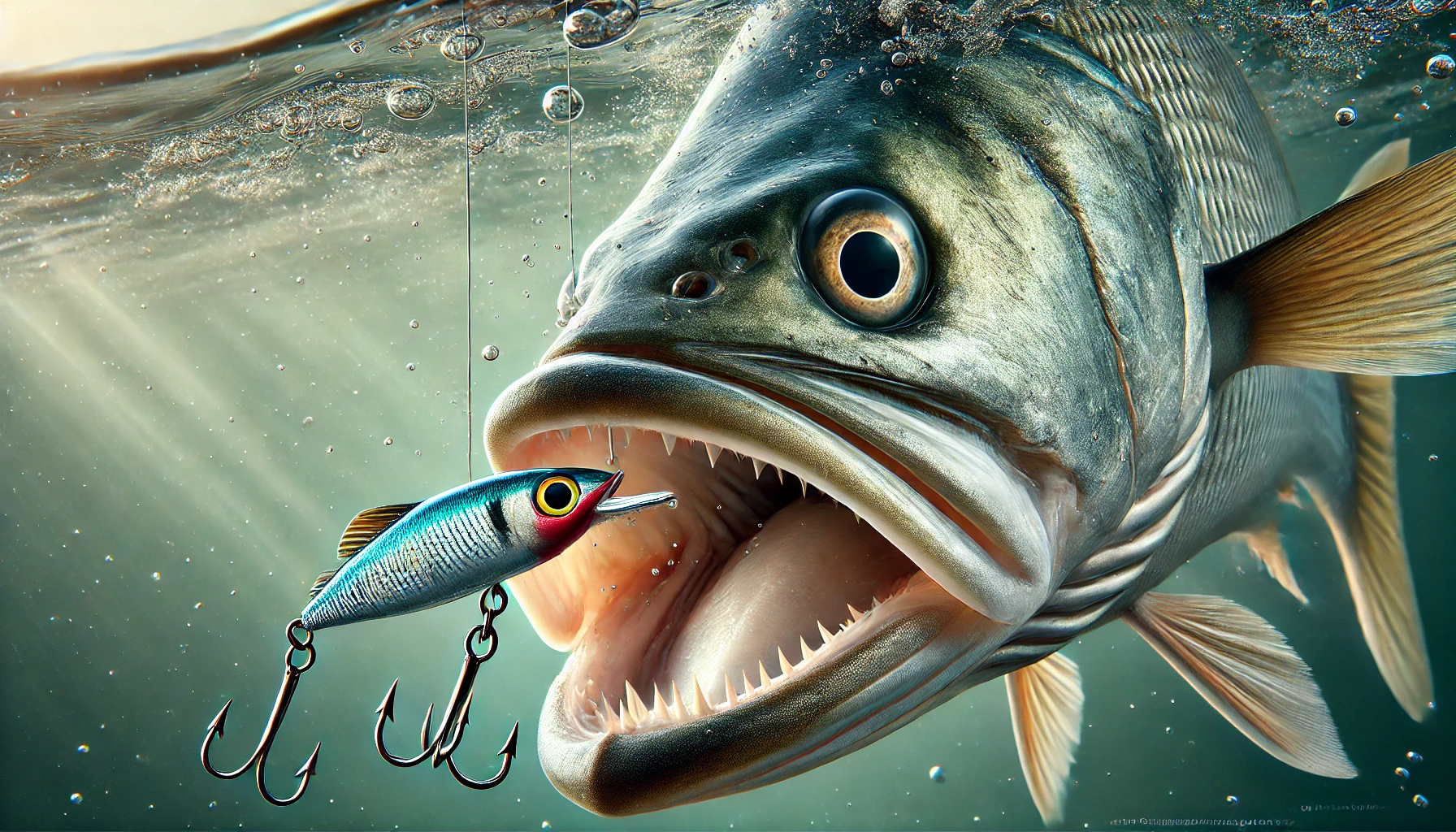G’day anglers! If you’re like us, you know there’s nothing quite like the thrill of fishing for mulloway. Known as the elusive “silver ghost,” these beauties are a prized catch for many Aussie fishermen. To catch mulloway successfully, choosing the right mulloway lures is crucial.
We’ve spent countless hours on the water, trying and testing different lures for mulloway. Through our experience, we’ve discovered that the right lure can make all the difference between a quiet day and a boatload of excitement. Whether you’re using soft plastics, paddle tails, or jerk shads, selecting the perfect lure is key to luring these clever fish.
But don’t forget, your gear is just as important as your lures. That’s why we always recommend pairing your mulloway lures with top-notch fishing lines from ReelBoss. We’ve got some fantastic options that won’t let you down when you’re battling a big one. Check them out at ReelBoss and get ready to reel in that dream catch. Tight lines, mates!
Understanding Mulloway Behavior
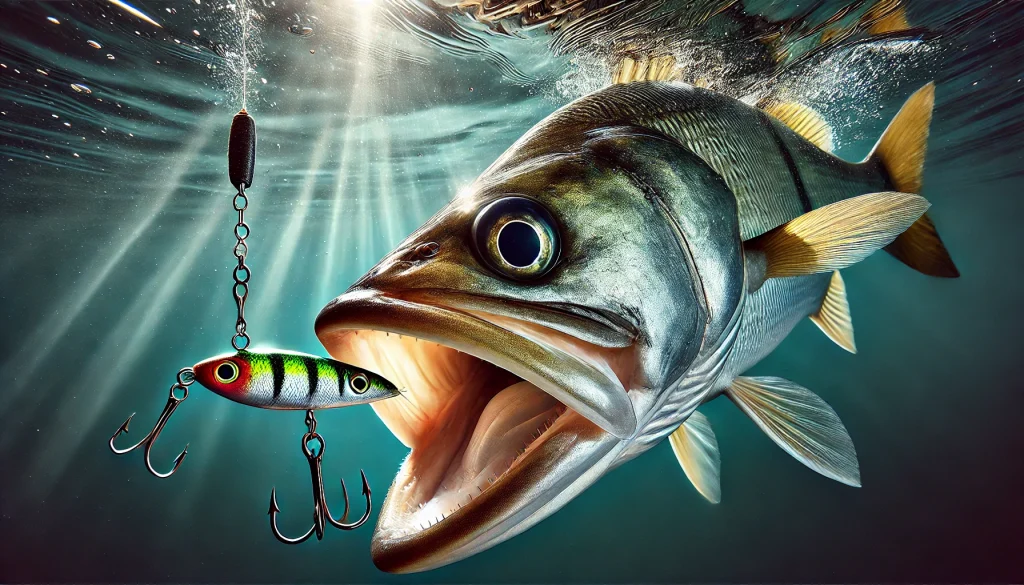
Alright, now that we’ve got our gear sorted, let’s dive into understanding the behavior of the elusive mulloway, also known as the silver ghost. This nickname comes from their sleek, silvery appearance and their ability to seemingly vanish in the blink of an eye. Knowing when and where to find them is half the battle.
Mulloway are nocturnal predators, which means they’re most active during low-light conditions. This is why dawn and dusk are prime times to be out on the water. These twilight hours provide the perfect cover for the silver ghost to hunt, making it an ideal time for us anglers to strike.
But there’s another crucial factor to consider: moon phases. The lunar cycle significantly influences mulloway activity. During the new and full moons, the increased tidal movements stir up more baitfish, drawing in hungry mulloway. These periods offer a higher chance of encounters with these mysterious fish.
By aligning your fishing trips with the right moon phases and targeting the dawn and dusk hours, you can greatly increase your chances of landing a mulloway. Understanding these patterns not only helps you predict their movements but also enhances your overall fishing experience. So, gear up and get ready to outsmart the silver ghost on your next adventure!
Top Mulloway Lures Choices
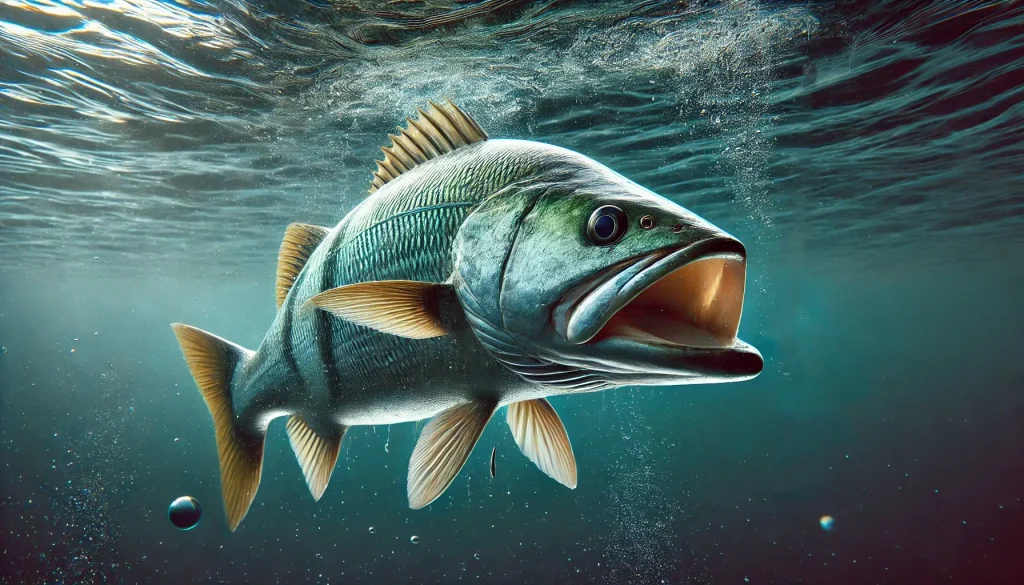
Now that we’ve got a handle on the behavior of the elusive silver ghost, let’s talk about the mulloway lures that will help you land one. Choosing the right mulloway lures is vital in your quest to catch mulloway. With so many options available, it can be tricky to decide which ones to use. In this section, we’ll explore some of the best mulloway lures and provide tips on how to use them effectively.
Soft Plastics: Versatile and Effective Mulloway Lures
Soft plastics are a favorite among many anglers for their versatility and lifelike action. These mulloway lures can mimic the appearance and movement of various baitfish, making them irresistible to hungry mulloway.
Among the popular types of soft plastics are paddle tails and jerk shads. Paddle tails have a rounded tail that creates a natural swimming motion, while jerk shads feature a slim profile and a darting action that can trigger a predator’s strike instinct.
To use soft plastics effectively, it’s essential to match the size and color of the lure to the local baitfish. When fishing in murky waters, opt for brighter colors that stand out, whereas natural colors work best in clear water. Rig your soft plastics on a jig head that suits the depth and current of your fishing spot. A slow and steady retrieve is usually the key to enticing a mulloway, but don’t be afraid to experiment with your technique.
Paddle Tails: Mimicking Natural Prey
Paddle tails are particularly effective because they mimic the natural prey of mulloway. The paddle tail’s unique shape allows it to move through the water with a realistic swimming action that can attract even the most cautious fish.
When using paddle tails to chase mulloway, cast your lure out and let it sink to the bottom. Mulloway often feeds near the seabed, so keeping your lure close to the bottom increases your chances of a bite. Use a slow, steady retrieve with occasional pauses to let the lure flutter down, imitating a wounded baitfish. This stop-and-go action can be irresistible to a mulloway on the hunt.
Best practices for targeting mulloway with paddle tails include paying attention to the depth at which you are fishing and adjusting your jig head weight accordingly. In deeper water, a heavier jig head will help you maintain contact with the bottom, while a lighter jig head is suitable for shallow areas.
Jerk Shads: Action-Packed Lures
Another excellent choice for catching mulloway is the jerk shad. These mulloway lures are known for their erratic, darting action, which can provoke a predatory response from mulloway. The slim profile of jerk shads makes them ideal for mimicking baitfish, especially in environments where mulloway are actively hunting.
To work jerk shads for maximum effectiveness, use a twitch-and-pause retrieve. Cast your lure and let it sink to the desired depth, then give your rod a quick twitch to make the lure dart erratically. Pause briefly to allow the lure to sink again before repeating the action. This erratic movement can trigger strikes from mulloway, who often see the darting lure as a fleeing fish.
Jerk shads are among the best lures for mulloway because of their versatility and ability to incite aggressive strikes. They work well in various conditions and can be fished at different depths, making them a reliable choice for any angler targeting mulloway.
Essential Gear for Mulloway Fishing
In addition to selecting the right mulloway lures, having the right gear is crucial. A sturdy rod and reel combo designed for medium to heavy action will help you handle the powerful runs of a hooked mulloway. Pair this with a high-quality fishing line to ensure you’re well-equipped for the fight.
Don’t underestimate the importance of your tackle box. Stock it with a variety of mulloway lures to match different conditions and mulloway behaviors. From soft plastics to paddle tails and jerk shads, having a range of options will keep you prepared for any situation.
When fishing in deeper waters or strong currents, use weights and rigs that help maintain your lure’s position in the strike zone. Additionally, having a good pair of polarized sunglasses can help you spot fish and underwater structures, improving your overall fishing experience.
By combining the right gear with the best mulloway lures, you’ll significantly increase your chances of a successful catch. For all your gear needs, visit our e-commerce store for a wide selection of top-quality equipment and mulloway lures.
Fishing Tips and Techniques
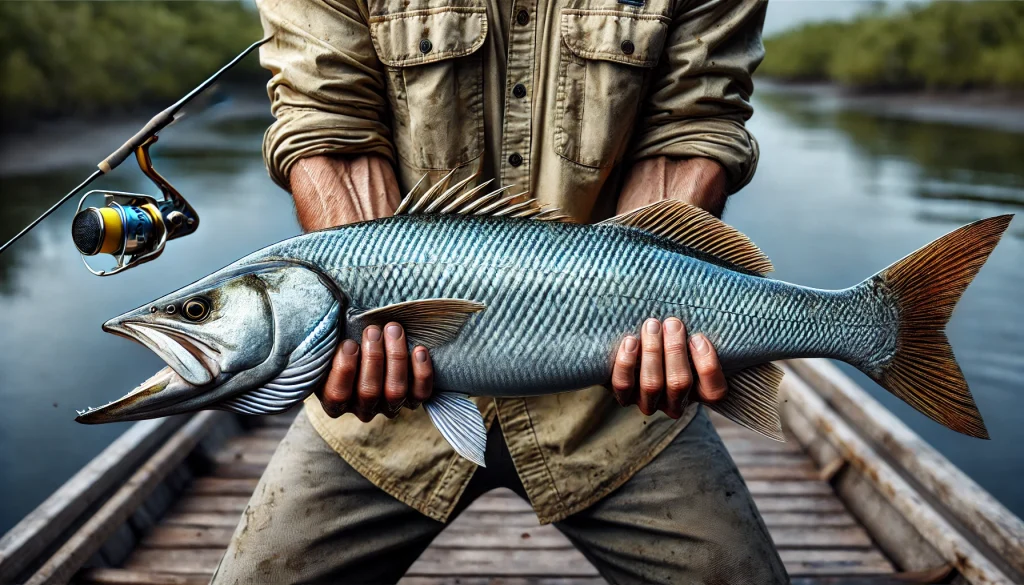
Alright, you’ve got your mulloway lures sorted, now let’s dive into some essential tips and techniques for fishing for mulloway. Landing the elusive silver ghost requires a blend of skill, patience, and a bit of luck. Here are some pointers to help you on your next outing.
First off, targeting mulloway effectively means understanding their habits and habitats. Mulloway is often found around structures such as rocky outcrops, bridge pylons, and drop-offs. These areas provide shelter and abundant food, making them prime spots to fish.
When fishing for mulloway, patience and persistence are key. Mulloway can be notoriously elusive, and you might have to wait a while before you get a bite. Keep casting and trying different techniques until you find what works.
Using the right gear is crucial. A medium to heavy rod with a strong, smooth drag system will help you handle the powerful runs of a hooked mulloway. Don’t forget to pair this with a high-quality line like from ReelBoss to ensure you’re well-equipped for the fight.
Lastly, time your trips around the moon phases and dawn and dusk when mulloway is most active. By combining these strategies, you’ll increase your chances of landing that dream catch.
Seasonal and Environmental Considerations
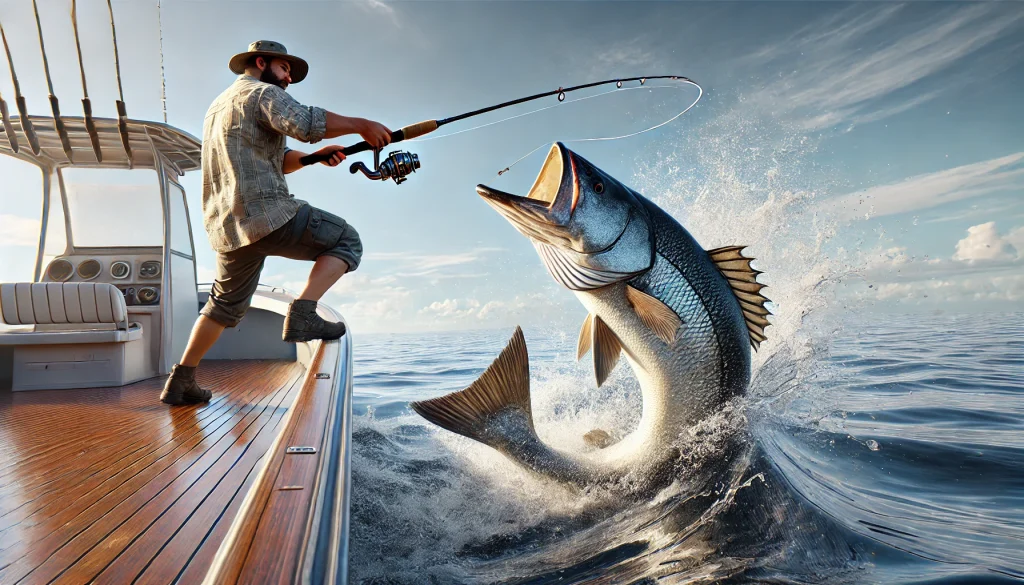
Understanding the seasonal and environmental factors can significantly enhance your success in fishing for mulloway. Mulloway behavior is greatly influenced by moon phases, which can affect their feeding patterns and activity levels.
During the new and full moons, the tidal movements are stronger, stirring up baitfish and making mulloway more active and easier to target. Planning your fishing trips around these moon phases can increase your chances of a successful catch.
In addition to moon phases, the time of day plays a crucial role. The optimal times to fish for mulloway are dawn and dusk. These twilight hours provide low-light conditions that make mulloway more confident in their hunting. Being on the water during these periods gives you a better chance of encountering these elusive fish.
Seasonal variations also impact mulloway behavior. During the warmer months, mulloway often moves into estuaries and rivers, seeking cooler, deeper waters. In winter, they might be found closer to the ocean, around coastal reefs and headlands. Understanding these seasonal patterns allows you to adjust your fishing locations and strategies accordingly.
By paying attention to moon phases, targeting dawn and dusk, and adapting to seasonal changes, you can improve your effectiveness in targeting mulloway. Armed with this knowledge, you’re well on your way to landing the silver ghost.
Conclusion
In conclusion, choosing the right mulloway lures is essential for a successful fishing trip. Whether you’re using soft plastics, paddle tails, or jerk shads, having the right lure can make all the difference. Understanding mulloway behavior, from their response to moon phases to their increased activity during dawn and dusk, will further boost your chances of catching these elusive fish.
Don’t be afraid to experiment with different mulloway lures and techniques. What works one day might not work the next, so keep trying new approaches until you find what works best for you.
Remember, having quality gear is just as important as having the right mulloway lures. Make sure to check out our e-commerce store for a wide selection of top-notch mulloway lures and reliable fishing lines from ReelBoss. With the right tools and knowledge, you’re well on your way to landing the silver ghost. Tight lines and happy fishing, mates!
